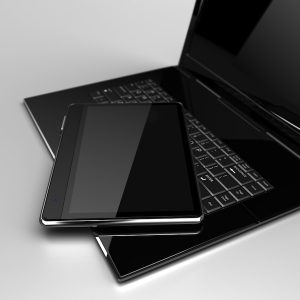Laptops and tablets are on a high-speed collision course
 As tablets become more popular among consumers, our functionality requirements also increase. The rise of this sector contributes to the blurring of the lines between notebooks and tablets, says NPD's Ross Rubin. Things will only get murkier when Windows 8 releases later this year, its Metro interface built with touchscreen interfaces in mind.
As tablets become more popular among consumers, our functionality requirements also increase. The rise of this sector contributes to the blurring of the lines between notebooks and tablets, says NPD's Ross Rubin. Things will only get murkier when Windows 8 releases later this year, its Metro interface built with touchscreen interfaces in mind.
NPD and Rubin see the entire industry encroaching on one another's turf. Android has found its way onto dual-boot devices like ViewSonic's Viewpad tablet. On the flipside, Windows 8 makes it enticing for manufacturers to add tablet-like features as the OS was built with mobile in mind.
Once the next-generation of Windows releases, the core of the operating system will be shared across both desktop and mobile platforms. Apple is already on this path, adding features of iOS into its most recent releases of Mac OS X.
Physical functionality is another point of convergence. Notebook consumers clamor for features found in tablets, such as touch and gesture functionality, while tablet users look towards features commonly found on laptops. "We see very strong sales of Bluetooth keyboards" for tablets, Rubin says in an interview with BetaNews on Wednesday.
“The lack of a keyboard has been a defining characteristic of most tablets on the market", he adds. "As tablets expand from content consumption to content creation, consumers are seeking a broader array of input options and screen sizes".
Rubin speaks of the need among manufacturers to begin to consider multiple usage patterns, especially in light of Windows 8's embrace of a user interface that plays well with touch. "Among consumers who are looking to purchase a new tablet, screen size and keyboards, two main components of a PC, are important characteristics for these future purchases", Rubin says.
This makes sense: while the Kindle Fire has certainly carved out its niche in the market, the tablet does not seem to be at the expense of the iPad itself. Sales of the device have not decreased since the Fire's debut, and the market only seems to have grown. This suggests a significant portion of tablet consumers look at their purchases as an alternative to laptops, and validates Rubin's argument.
With the meeting in the middle of the notebook and the tablet, where does that leave the ultrabook? Arguably, the platform has been seen as the middle ground here. Intel's own reference designs for the next generation of ultrabooks incorporate tablet-like functionality.
I brought up the possibility that the ultrabook might get squeezed out as a result of this convergence, but Rubin disagrees. He says the ultrabook as the catalyst for this whole blurring of the definition of tablets and laptops, and mentions Intel's work in the sector.
"Intel is planning to enable a lot of the capabilities seen in tablets today", he argues. "The company is positioning ultrabooks as apart of the PC world that's going to overlap".
So Rubin thinks that the line is blurring. Do you? Are tablets and notebooks headed on a collision course? Will one win over another? Let us know in the comments. I would also like to hear from those who have replaced your laptop with a tablet, and why. We'll report on your experiences in a future story.
Photo Credit: CLIPAREA l Custom media/Shutterstock